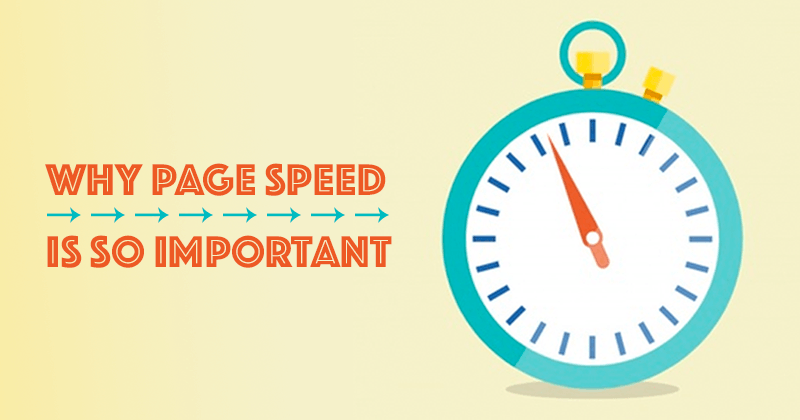Why is Page Speed so Important?

Page Speed has been a Google search engine ranking factor for desktop search since 2010 and just last year, Google announced that Page Speed will be a ranking factor for mobile search as well.
Google deems page speed so important that they provide—free of charge—a place whereby you can test your website for speed, called Page Speed Insights. Once you add in your website, Google will analyze and suggest areas of improvement. Search Engine Land, also releases every year a Periodic Table of SEO Factors that ranks Page Speed high in importance. So…
Why is Page Speed so Important?
The easiest answer is that the audience cares about page speed, even if they don’t say it. Fundamentally, people are impatient and if your website is slow, they’ll abandon the page and go back to where they came from. It’s no longer the days of dial-up when websites were so new, we were willing to spend precious time waiting for them to load. Websites have moved from new technology to every day technology and so people aren’t just going to wait around to read or hear what you’ve got to say. Here’s some stats from Kissmetrics for you to review:

6-10 seconds : The time people SAY they will wait for a page to load
3 seconds: Actual time for 40% of people to abandon a website before it loads
When people were asked, most said that they’d wait 6 to 10 seconds for a page to load, but 47% expect a web page to load in under 2 seconds, and 40% abandon a website if it takes longer than 3 seconds. Another study, conducted by Pindom found that “a page’s load time directly impacts bounce rate.” Below we took their stats and put them into our own chart, so you can see how page load time impacts the time people wait on a site.

So, there’s a disconnect between what people say about how long they are willing to wait, and how long they actually wait. Of course, when you say 6 to 10 seconds, it doesn’t seem that long, now count it out—1…2…3…4…5…6..—I know myself I would have abandoned by then. It’s actually a really long time when it comes to waiting for one single page to load. Which is why Kissmetrics estimates that “if an e-commerce site is making $100,000 per day, a 1 second page delay could potentially cost $2.5 million in lost sales every year.”
Google, in their research, also found that the average mobile page speed load time was 15 seconds, while 53% of mobile site visitors leave a page after waiting 3 seconds. And because of this mobile conversation rates are lower than desktop.
Google found as page load time goes from:
- 1 second to 3 seconds—the probability of a bounce increases 32%
- 1 second to 5 seconds—the probability of a bounce increases 90%
- 1 second to 6 seconds—the probability of a bounce increases 106%
- 1 second to 10 seconds—the probability of a bounce increases 123%
Whether your site is an e-commerce site or not, this abandonment rate is going to translate into lost revenue and failed marketing campaigns. In my next blog post, I’m going to tell you how to increase your page speed, so you can ensure that at least this one factor is not impacting your business.
We know SEO isn’t easy. Want some help? Reach out and leverage our expertise at info@searchwarrant.ca.
